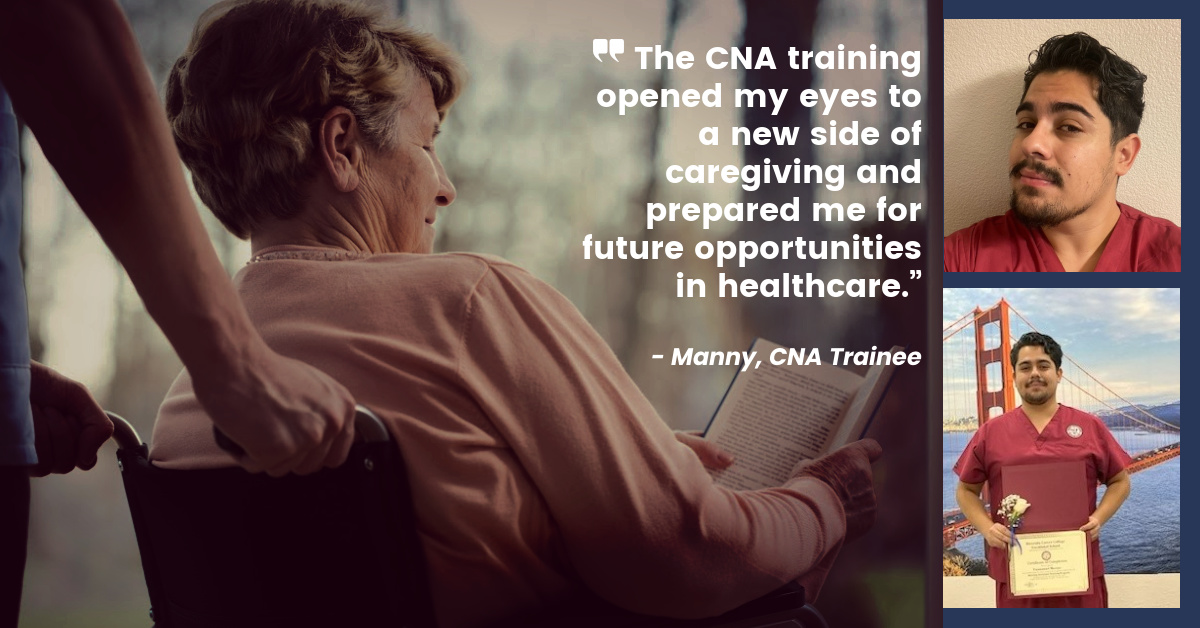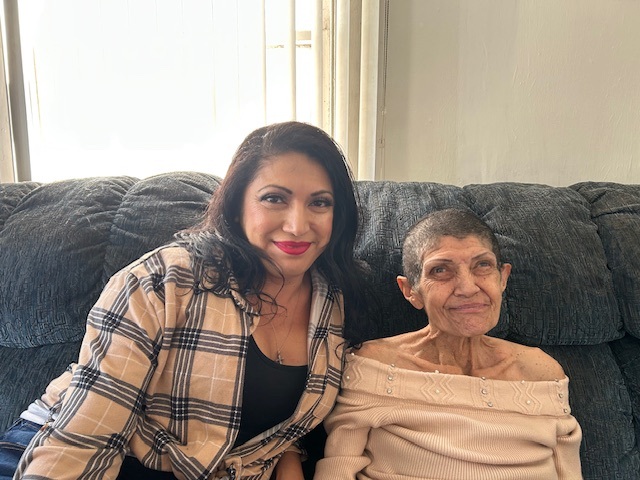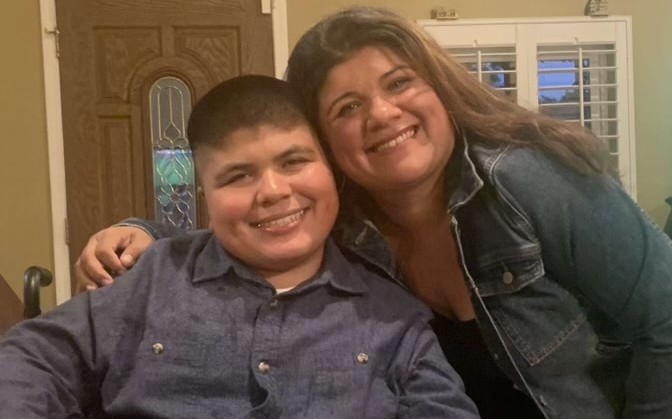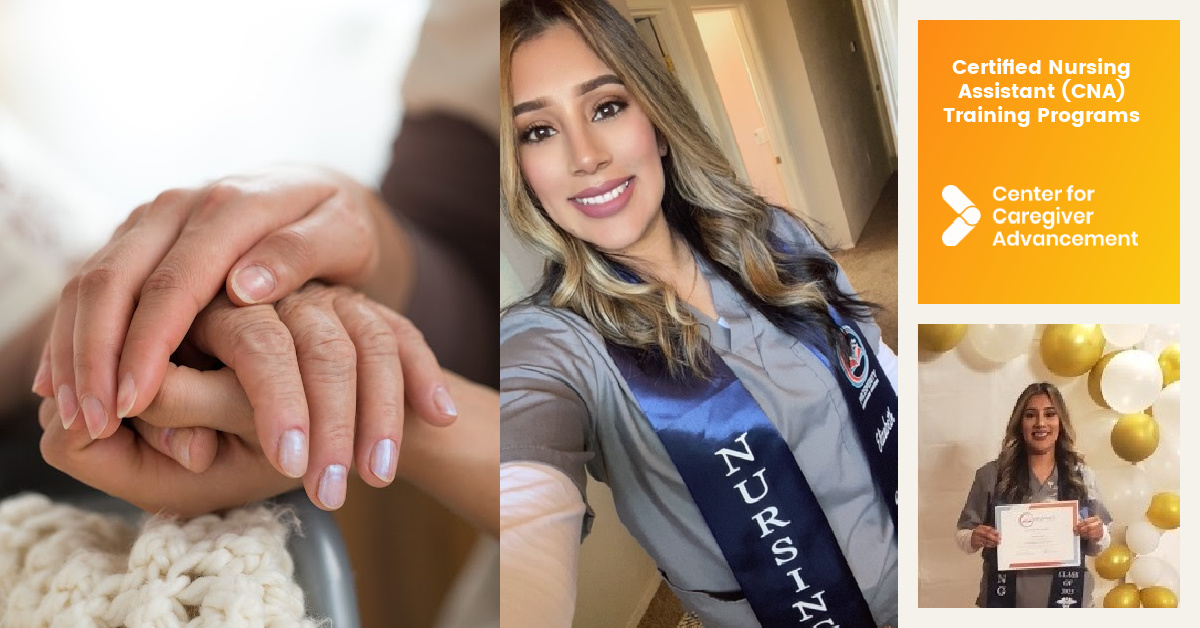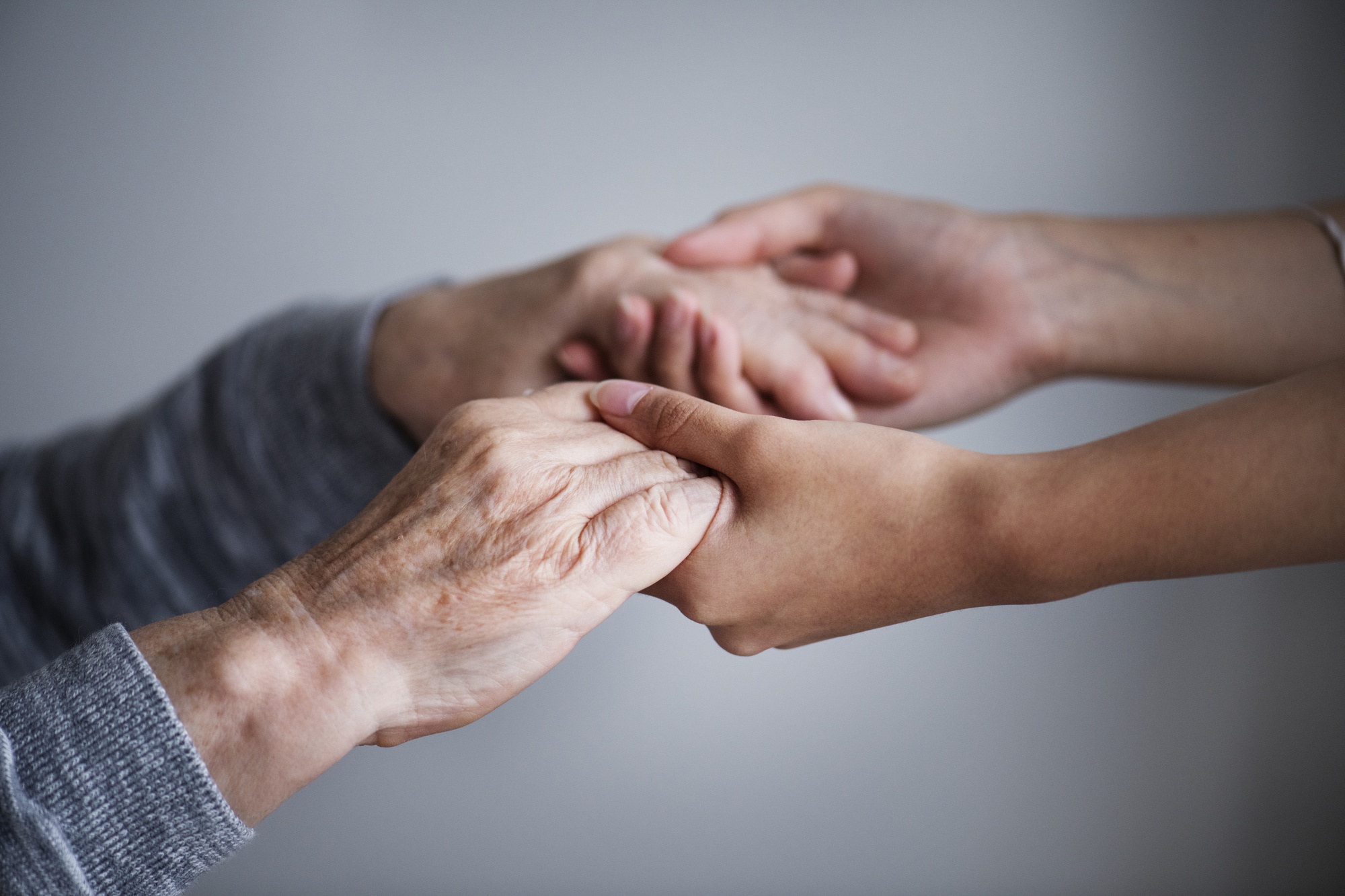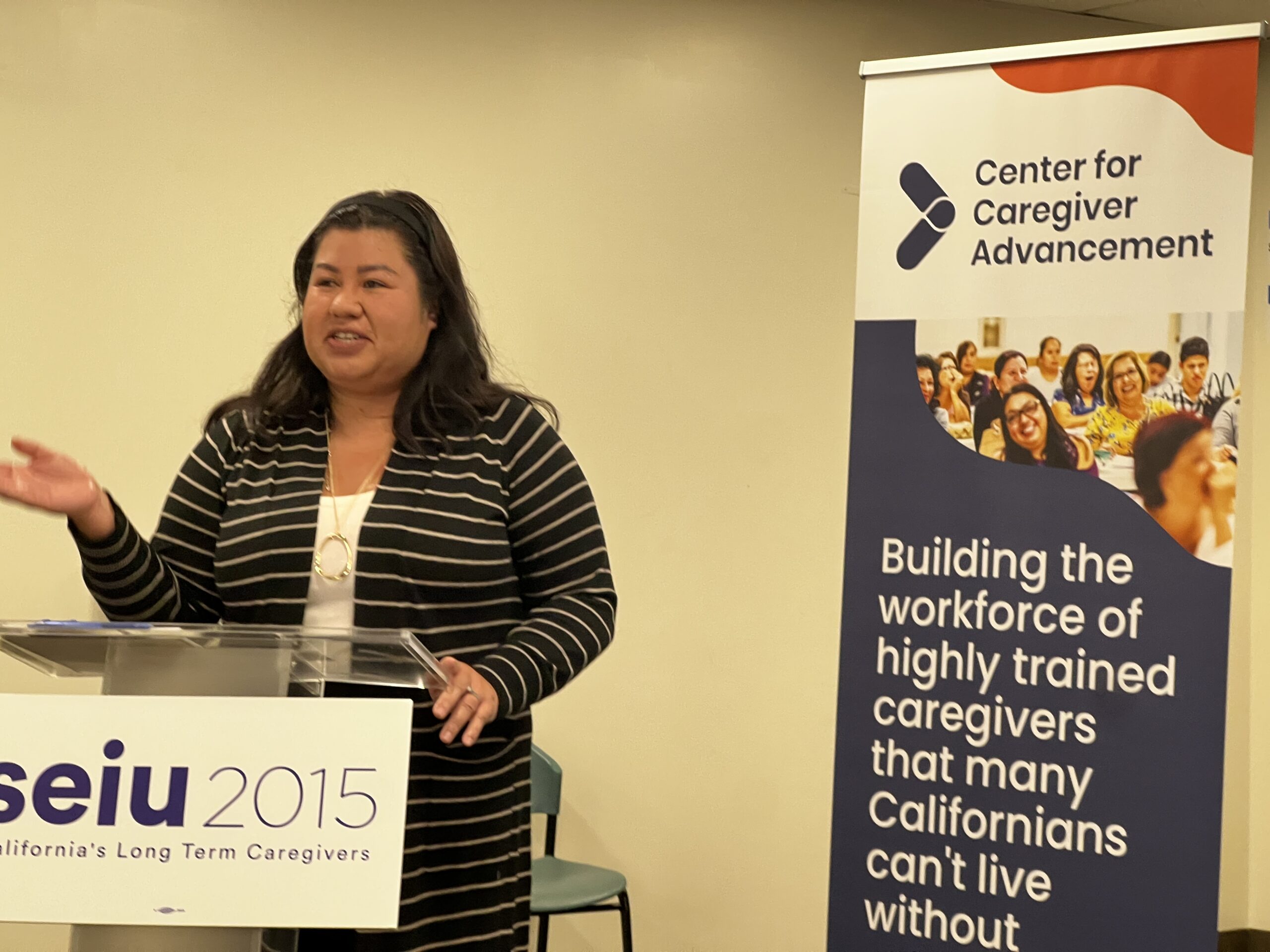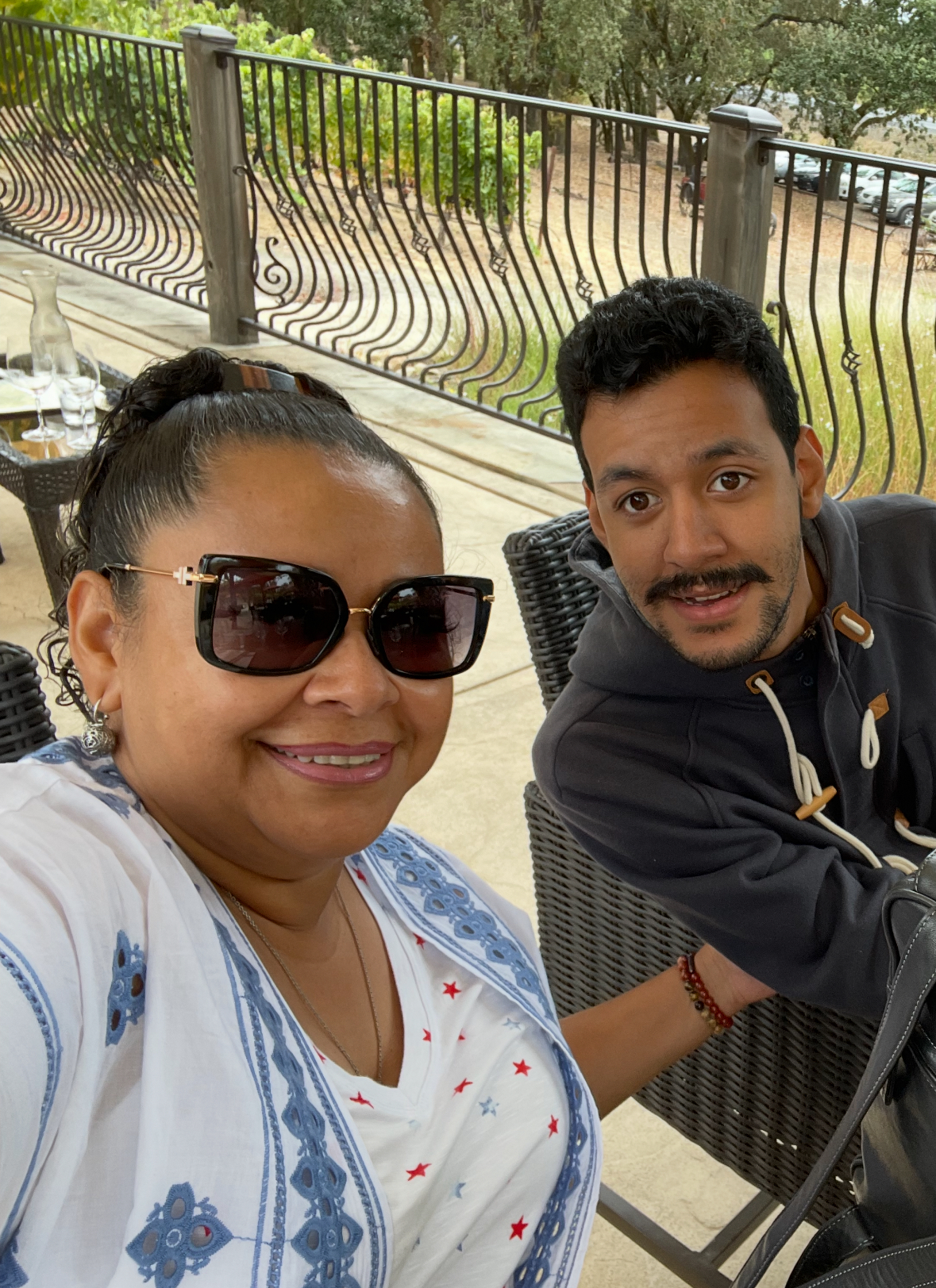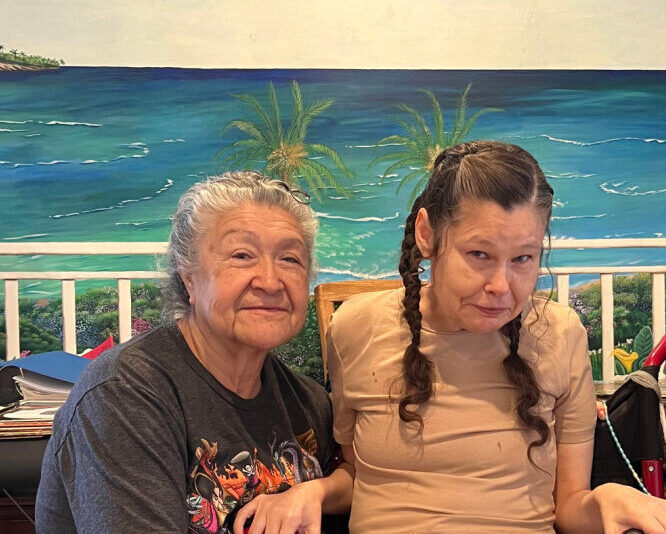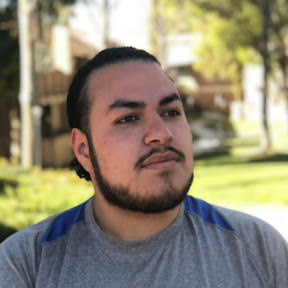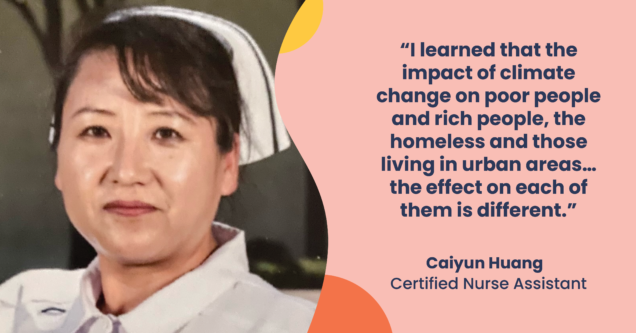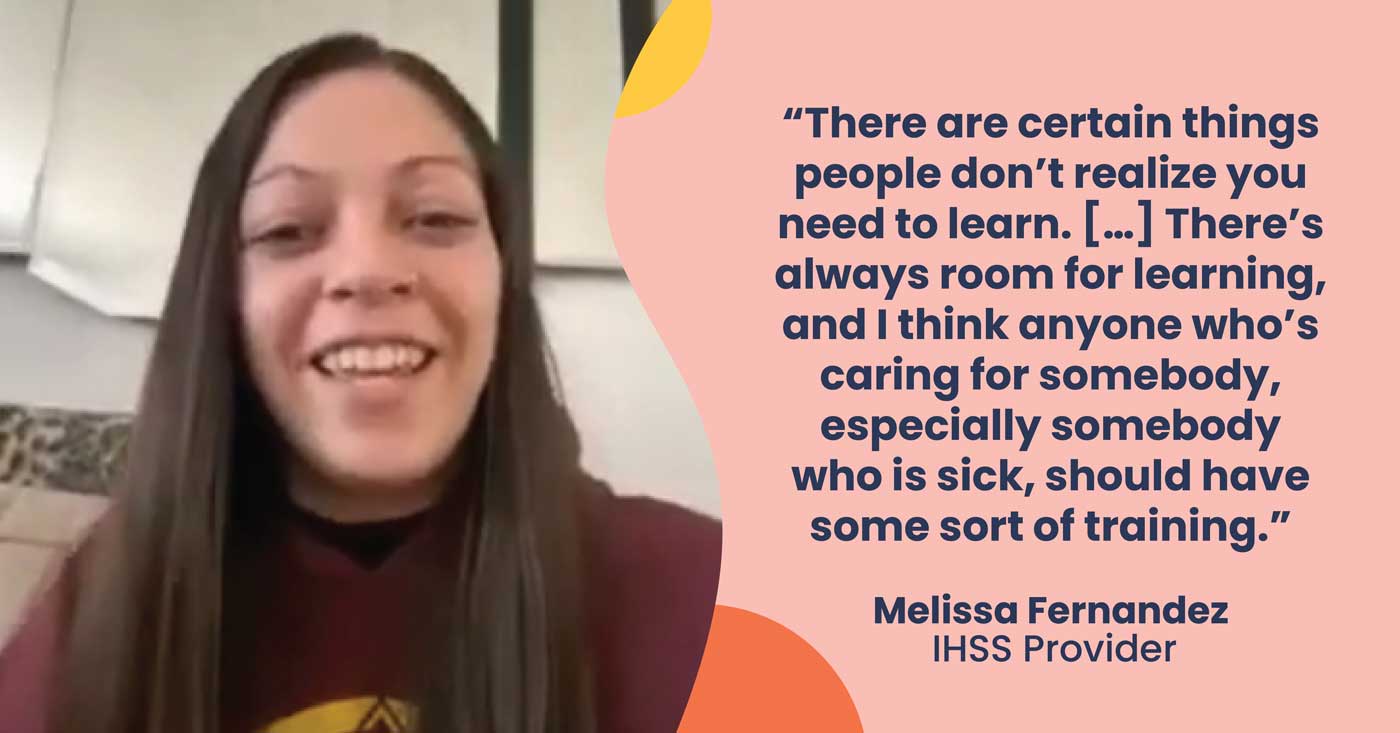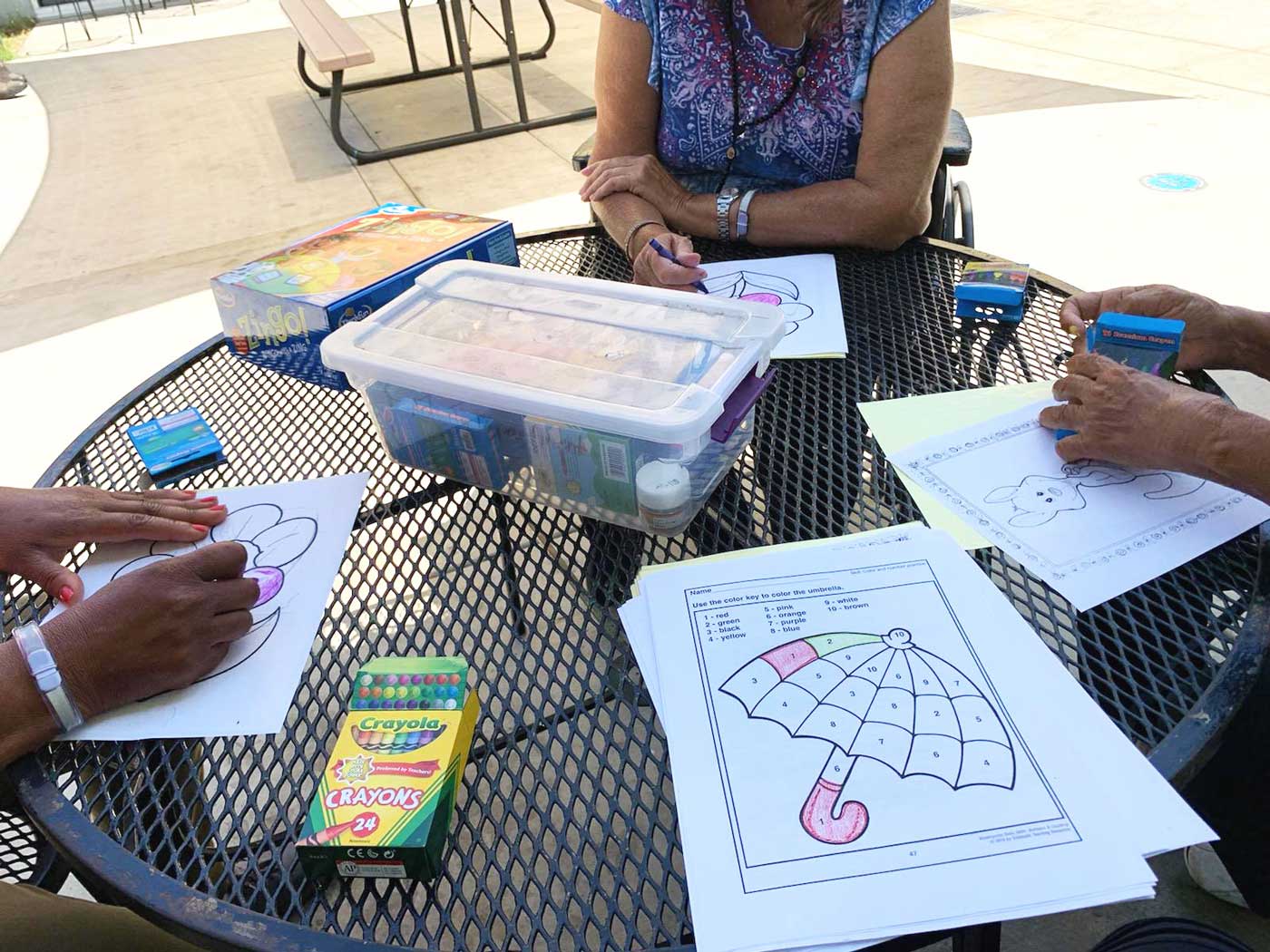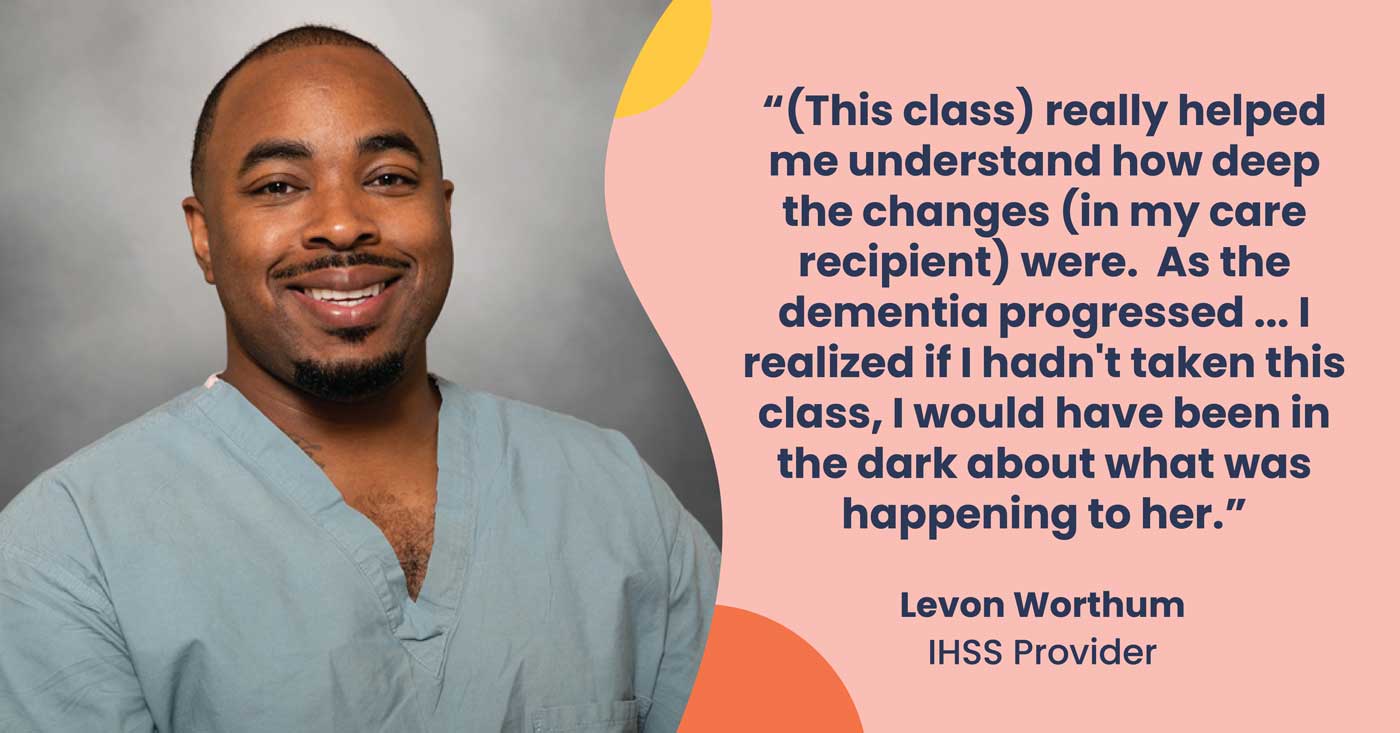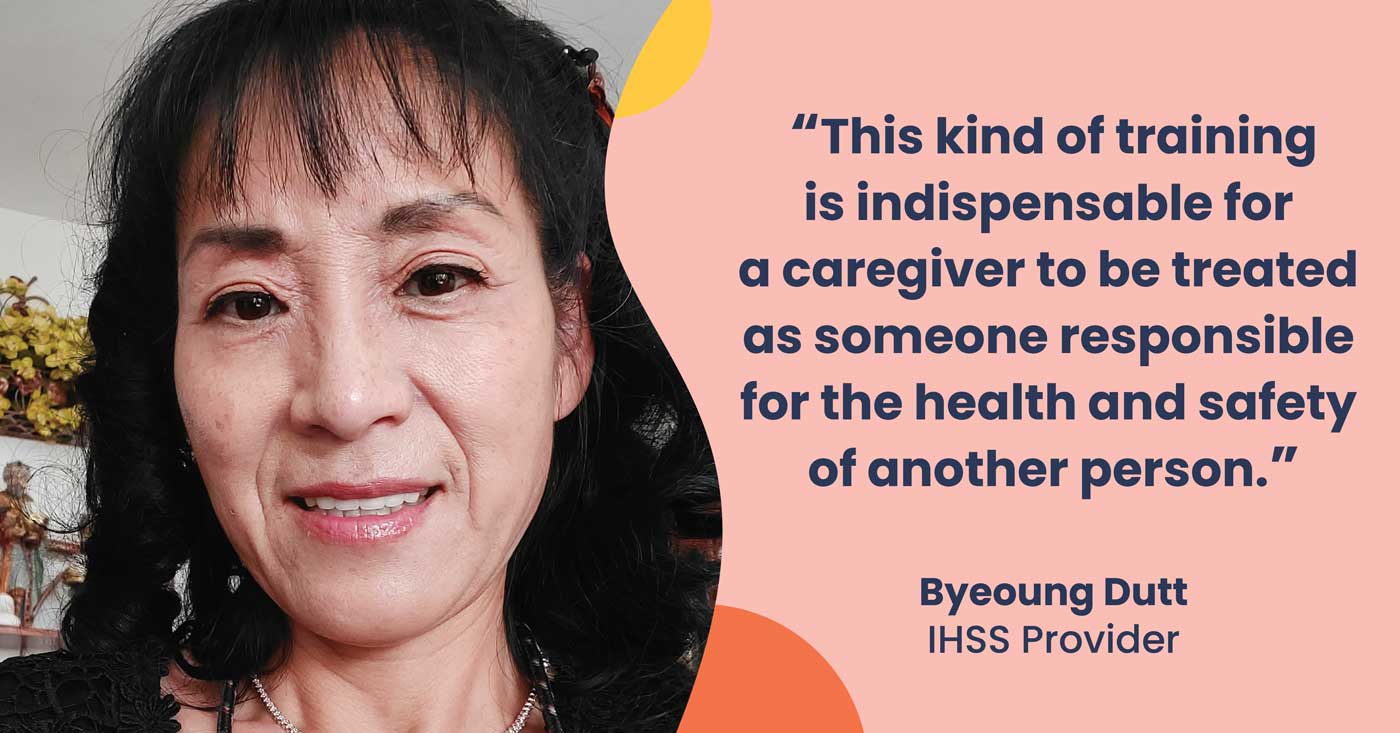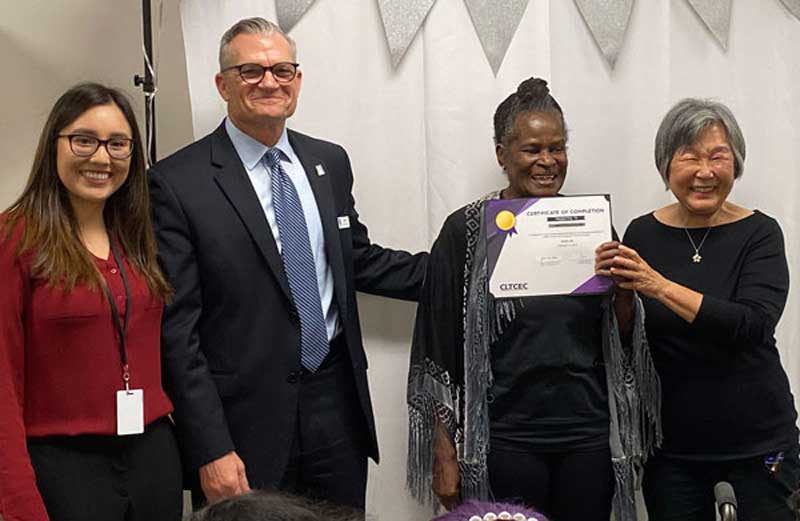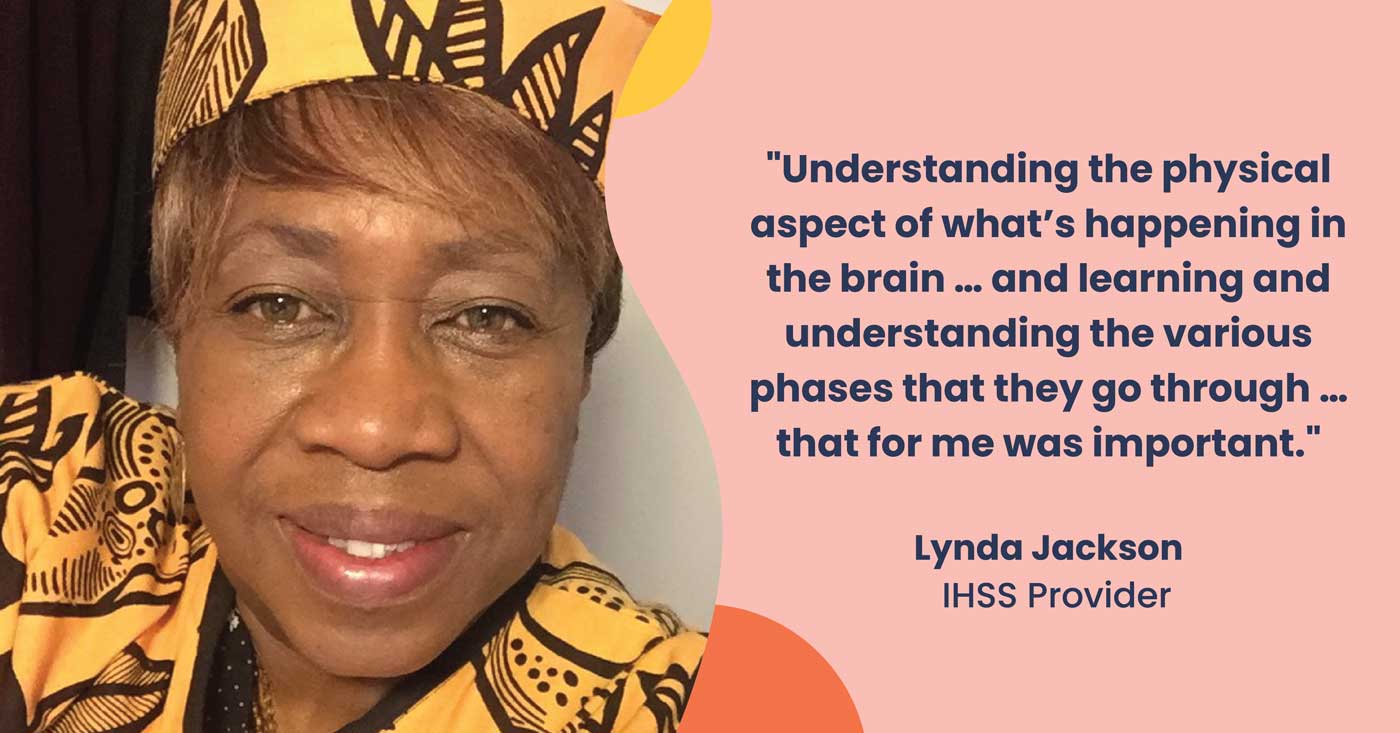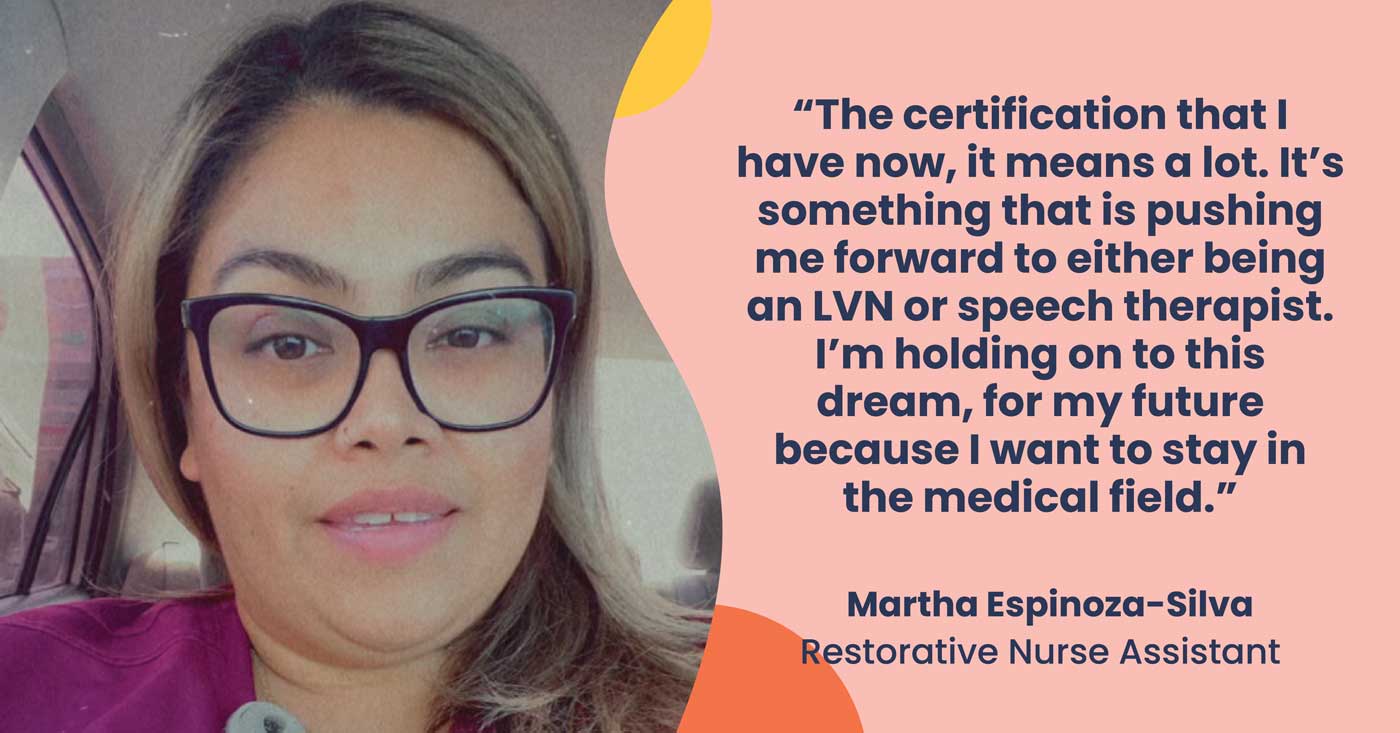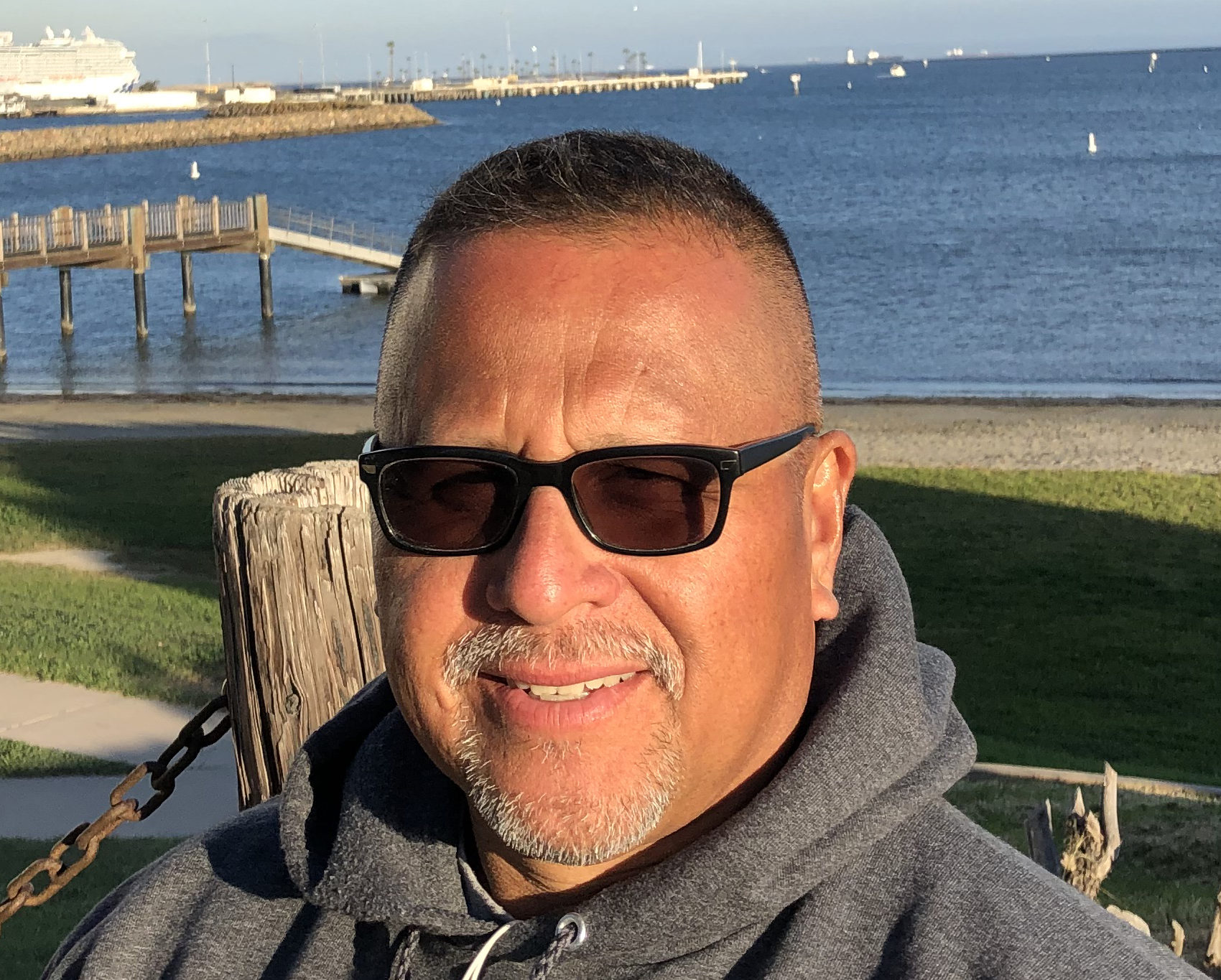In her hands, Cecilia Rodriguez held a bag. “In my dream, I grab a bag and in it, I place all my dreams and the pain of having left my children,” she said. In 1986, she was 33 and a young mother in Honduras. Her youngest child was only 7. Still, she had to leave.
Rodriguez, now 66, found work in the United States trimming clothes in Chinatown in Los Angeles, CA. Then she began making tamales to sell. Eventually, she was able to send for her six children to join her.
“Thanks to God, I have all my children living legally in the United States,” she said.
One of them has a disability, and he is the reason she sought training at the Center for Caregiver Advancement (CCA, which was formerly called California Long-Term Care Education Center/CLTCEC). “I have always liked challenges, and I like to learn more,” Rodriguez said.
CCA is the largest provider of long-term care training in California. Its IHSS+ training program is a 10-week course that educates and empowers caregivers who provide services to seniors and persons with disabilities. In these classes, caregivers learn skills such as assisting in activities of daily living (bathing, dressing, etc), infection control, medication adherence, nutrition, communication, home safety, CPR, and personal care.
Before the coronavirus pandemic, classes were held in person in multiple languages, at different sites across Los Angeles County. During the pandemic, CCA transitioned to online training for caregivers, or virtual learning.
During her IHSS+ online training for caregivers, Rodriguez gained valuable skills and knowledge on how to better care for her son. What she most enjoyed during class, though, was interacting with fellow caregivers and sharing experiences. She missed that camaraderie when the coronavirus outbreak forced CCA to pause in-person classes in March 2019.
“I felt bad (when classes stopped),” she said.
Classes resumed two weeks later but the new online format caused her to worry.
“I’ve never enjoyed meetings via technology, because I felt I wasn’t prepared. But with the CCA online training for caregivers, I learned to enjoy the challenge.”
Rodriguez said her field representative, Isabel Menjivar, talked her through using her phone to access the Zoom meetings, persevering until both of them felt confident in her newfound skills.
“Now I’m really good,” Rodriguez said. “I’m much more prepared.”
Dr. Antonio Borras, CCA instructor, said that with the transition to virtual learning his students panicked and were hesitant at first, but quickly grew in confidence and enthusiasm once online classes began.
“It was an unforgettable experience to see my students face a new challenge, something they would not have thought about before, and overcome all difficulties,” he said.
Rodriguez is using her new caregiver skills not only to protect and nurture her son, but also to keep herself healthy and strong. She is fastidious about hand-washing, and she has learned how to carefully and properly assist her son with dressing, bathing, and moving.
“My day is happy when my son wakes up and hugs and kisses me,” Rodriguez said. “We have breakfast together and we exercise. I bathe him and I thank God that he has given me this angel who is never in a bad mood.”
Rodriguez said overcoming her fear of technology and embracing virtual learning, especially since English is not her first language, brought back memories of when she first arrived in the United States.
“I received my strength when I stepped out of Honduras in 1986,” she said. “I defeated (my fears) and triumphed. I got all my dreams and what I wanted with faith in God.”
It is something she tells her son, and all her children: “Dream and practice fighting for what you want. Fighting and dreaming is how goals are achieved.”




